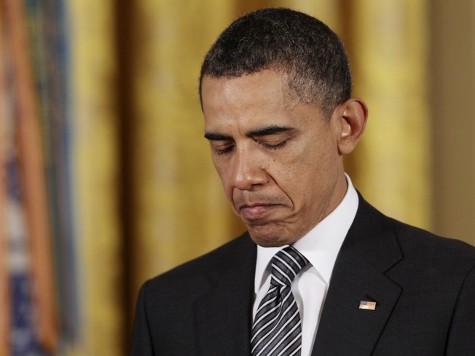
Working together again, the White House and Media Matters have spent the last week attempting the herculean task of turning the Benghazi-scandal battleship around in the hopes of attacking conservatives. Washington Post factchecker, Glenn Kessler, just destroyed that cynical maneuver.
After Jonathan Karl of ABC News reported that emails proved that the Obama administration had in fact taken a major role in the shaping of the final draft of the CIA’s Libya talking points, the actual transcript of a single email was leaked to CNN’s Jake Tapper (probably by the White House).
Karl had not seen the actual email and based his reporting on a summary provided to him by a source. Karl quoted an email written by Obama’s national security advisor Ben Rhodes this way:
We must make sure that the talking points reflect all agency equities, including those of the State Department, and we don’t want to undermine the FBI investigation. We thus will work through the talking points tomorrow morning at the Deputies Committee meeting.
Tapper reported that Rhodes actual email read this way:
We need to resolve this in a way that respects all of the relevant equities, particularly the investigation….We can take this up tomorrow morning at deputies.
Immediately the Left-Wing Outrage Machine kicked into gear, claiming that Karl had been given a “doctored” transcript and that “that” was the only real scandal here — not the fact that the White House repeatedly lied about the administration’s role in watering down the talking points into something that was both totally false and very helpful to Obama’s re-election bid.
Piling on Sunday was White House communications director Dan Pfeiffer, who appeared on all five Sunday shows and repeatedly claimed that the Karl email was “doctored” to “smear the president.”
Washington Post factchecker, Glenn Kessler, took a close look at the brouhaha Tuesday and awarded Pfeiffer (and by extension Media Matters) three Pinocchios for this ridiculous claim.
It has long been part of the Washington game for officials to discredit a news story by playing up errors in a relatively small part of it. Pfeiffer gives the impression that GOP operatives deliberately tried to “smear the president” with false, doctored e-mails. …
The burden of proof lies with the accuser. Despite Pfeiffer’s claim of political skullduggery, we see little evidence that much was at play here besides imprecise wordsmithing or editing errors by journalists.
What is most important, though, is that Kessler doesn’t see much of a difference between what Karl originally reported and the actual transcript. Karl’s reporting of what the Rhodes’ email meant is accurate:
Note the correct version is missing a direct reference to the State Department. CNN, which had only obtained the single e-mail, used strong words in its report about its competitor, ABC: “Whoever provided those accounts seemingly invented the notion that Rhodes wanted the concerns of the State Department specifically addressed.”
When the White House last week released all of its e-mails, it became clear that Rhodes was responding at the tail end of a series of e-mail exchanges that largely discussed the State Department concerns.
In other words, the summary would have been fairly close if the commas had been removed and replaced with brackets: “We must make sure that the talking points reflect all agency equities [including those of the State Department] and we don’t want to undermine the FBI investigation.”
According to Kessler, Karl erred in how he transcribed the email, Tapper erred in assuming a single email settled the matter, and once all the emails were released, the overall context vindicated Karl’s original reporting that the White House had taken a role in shaping the talking points on behalf of the State Department.
In the end, what Kessler sees are two very good reporters caught in the grind of a desperate White House taking advantage of a small error to muddy the waters to its own benefit.
Follow John Nolte on Twitter @NolteNC

COMMENTS
Please let us know if you're having issues with commenting.